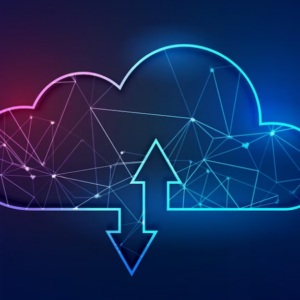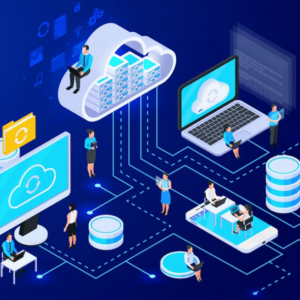Introduction
In today’s digitally-driven world, the term “cloud computing” has become ubiquitous. From personal users to large corporations, everyone is talking about it. But what exactly is cloud computing, and how does it revolutionize the way we use and store data? In this article, we will take a deep dive into the realm of cloud computing, demystifying its concept, exploring its benefits, and addressing common concerns.
Understanding Cloud Computing
Defining the Cloud
Cloud computing refers to the delivery of computing services over the internet. These services include storage, databases, servers, networking, software, and more. Instead of relying on a local server or a personal computer to handle these tasks, cloud computing allows users to access and utilize resources hosted on remote servers, often owned and maintained by third-party providers.
The Three Service Models
Cloud computing is typically categorized into three service models:
- Infrastructure as a Service (IaaS) : This model provides virtualized computing resources over the internet. Users can rent virtual machines, storage, and networking on a pay-as-you-go basis.
- Platform as a Service (PaaS) : PaaS offers a platform that allows developers to build, deploy, and manage applications without worrying about the underlying infrastructure.
- Software as a Service (SaaS) : SaaS delivers software applications over the internet. Users can access these applications through a web browser without the need for installation.
Deployment Models
Cloud computing can also be deployed in various ways:
- Public Cloud : Services are offered to multiple users over the internet, with resources shared among different organizations. Examples include Amazon Web Services (AWS), Microsoft Azure, and Google Cloud Platform (GCP).
- Private Cloud : A private cloud is used exclusively by a single organization. It provides more control over security and customization but requires significant infrastructure investment.
- Hybrid Cloud : Hybrid cloud combines elements of both public and private clouds, allowing data and applications to be shared between them.
Advantages of Cloud Computing
Cost-Efficiency
One of the most significant advantages of cloud computing is cost-efficiency. Businesses can reduce capital expenditures on hardware and maintenance and instead pay only for the resources they use. This pay-as-you-go model can lead to substantial savings.
Scalability and Flexibility
Cloud services are highly scalable, allowing organizations to scale up or down as needed. This flexibility ensures that businesses can adapt to changing demands without overcommitting resources.
Accessibility
With cloud computing, data and applications are accessible from anywhere with an internet connection. This accessibility facilitates remote work, collaboration, and business continuity.
Security
Cloud providers invest heavily in security measures, often surpassing what individual organizations can achieve. Data encryption, regular security updates, and compliance with industry standards are common features of cloud services.
Concerns and Challenges
Security Concerns
While cloud providers prioritize security, data breaches and cyberattacks remain concerns. It’s crucial for organizations to implement their security measures and select reputable cloud providers.
Data Privacy
Storing sensitive data in the cloud can raise privacy issues. Companies should carefully consider data protection regulations and compliance requirements.
Downtime
Even with high uptime guarantees, cloud services can experience downtime. Organizations should have backup plans in place to mitigate the impact of service interruptions.
Conclusion
In a world where data is king, cloud computing offers a throne of endless possibilities. Its ability to provide cost-efficient, scalable, and secure computing services has revolutionized the way businesses and individuals operate. While challenges and concerns persist, the cloud’s silver lining shines brightly.
Frequently Asked Questions (FAQs)
- Is cloud computing the same as the internet?
- No, cloud computing uses the internet to deliver services, but it encompasses a wide range of computing resources beyond just internet access.
- Can I use the cloud for personal storage?
- Yes, many cloud providers offer personal storage solutions for photos, documents, and more.
- How do I choose the right cloud service provider for my business?
- Assess your specific needs, budget, and security requirements, then research and compare different providers to make an informed choice.
- What are the potential downsides of using a public cloud?
- Public clouds are shared with other users, which can lead to security and performance concerns. Additionally, costs can escalate if not managed properly.
- Is my data safe in the cloud?
- While cloud providers invest in security measures, the safety of your data also depends on your own security practices and the specific provider you choose.





